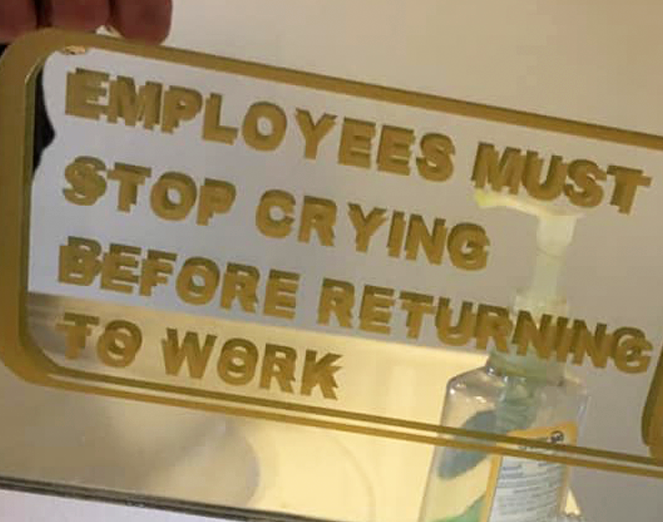

It’s for store finding. While you and I might not use it a lot of people do.


It’s for store finding. While you and I might not use it a lot of people do.
Look. You need to stop moving the goalposts. The post I replied to was about “could a person be charismatic enough to gain 12 followers.” The answer is yes.
Could a person do it in a short period of time? Yes.
Why do you insist on being insufferable?
Jim Jones started his church in 1954 and had enough followers to buy his own church building by 1955.
I don’t know the exact timeline on it but his faith healing garbage was a conscious effort to engender faith in his teachings and has been written about as being effective in less than a year.
Not having to interact with Nazis is tied to which instance I signed up on? I’m confused by this argument.
This happens regularly… They are called cults today… Their members also believe their Messiah is a messenger from (or literally is) god… And they get much more than 12.
A thousand novel mistakes.
The two cases, they knew what it was and they did it maliciously. They didn’t know what they were doing and got socially engineered in the process. Both cases are cause for failure.
Sure. But for an entry level interview as a pen tester… Scanning with Kali should be an easy task.
Using Kali? Easy if you have training. The capstone for our security course a decade ago was too find and exploit 5 remote machines (4 on the same network, 1 was on a second network only one of the machines had access to) in an hour with Kali. I found all 5 but could only exploit 3 of them. If I didn’t have to exploit any of them 7 would be reasonably easy to find.
Kali basically has a library of known exploits and you just run the scanner on a target.
This isn’t novel exploit discovery. This is “which of these 10 windows machines hasn’t been updated in 3 years?”


Ah. I see. So it’s not that you can’t get them it’s that they are expensive and you are looking for a reasonably priced way to get one. That makes sense.


Online? I’m confused, do they not ship to Greece?


Separation of data between accounts makes them fall under different retrieval requirements.
As one account, a request for all of the data from that account contains both chunks. Separation of those accounts separates the need to accommodate requests for data from one on the other.
It can also mean that internally they may have a sufficient mechanism that data that was previously identifying to no longer being identifying (breaking userid to data pairings for example) which is sufficient to “anonymize” the data that it no longer needs to be reported or maintained.


GDPR and pii reasons most likely. It’s a nightmare keeping track of why certain data is on certain accounts. This can vastly simplify the GDPR compliance mechanisms. If your GOG account is merged with your PR account, there is probably significantly more “sensitive” data (CC numbers, addresses, etc) in the GOG account. This probably exempts some data that either cdpr or gog tracks from deletion or retrieval requests.


Here, now you don’t have to imagine:
https://www.blackpast.org/african-american-history/combahee-river-collective-statement-1977/
This isn’t a new thing. Black women have known about this for a long time.
we find our origins in the historical reality of Afro-American women’s continuous life-and-death struggle for survival and liberation.
we were told in the same breath to be quiet both for the sake of being “ladylike” and to make us less objectionable in the eyes of white people.
let alone cataloguing the cruel, often murderous, treatment we receive, Indicates how little value has been placed upon our lives during four centuries of bondage in the Western hemisphere.
Win12 confirmed 2044 release date.
Win12 confirmed as a Linux mint cinnamon derivative distro.
I too have forgotten to memset my structs in c++ tensorflow after prototyping in python.


If it’s not specified, monthly. Otherwise it’s specified.


I don’t think either is actually true. I know many programmers who can fix a problem once the bug is identified but wouldn’t be able to find it themselves nor would they be able to determine if a bug is exploitable without significant coaching.
Exploit finding is a specific skill set that requires thinking about multiple levels of abstraction simultaneously (or intentionally methodically). I have found that most programmers simply don’t do this.
I think the definition of “good” comes into play here, because the vast majority of programmers need to dependably discover solutions to problems that other people find. Ingenuity and multilevel abstract thinking are not critically important and many of these engineers who reliably fix problems without hand holding are good engineers in my book.
I suppose that it could be argued that finding the source of a bug from a bug report requires detective skills, but even this is mostly guided inspection with modern tooling.
Or 20% less child…
I don’t know if this means the child is younger… Missing more limbs or older…